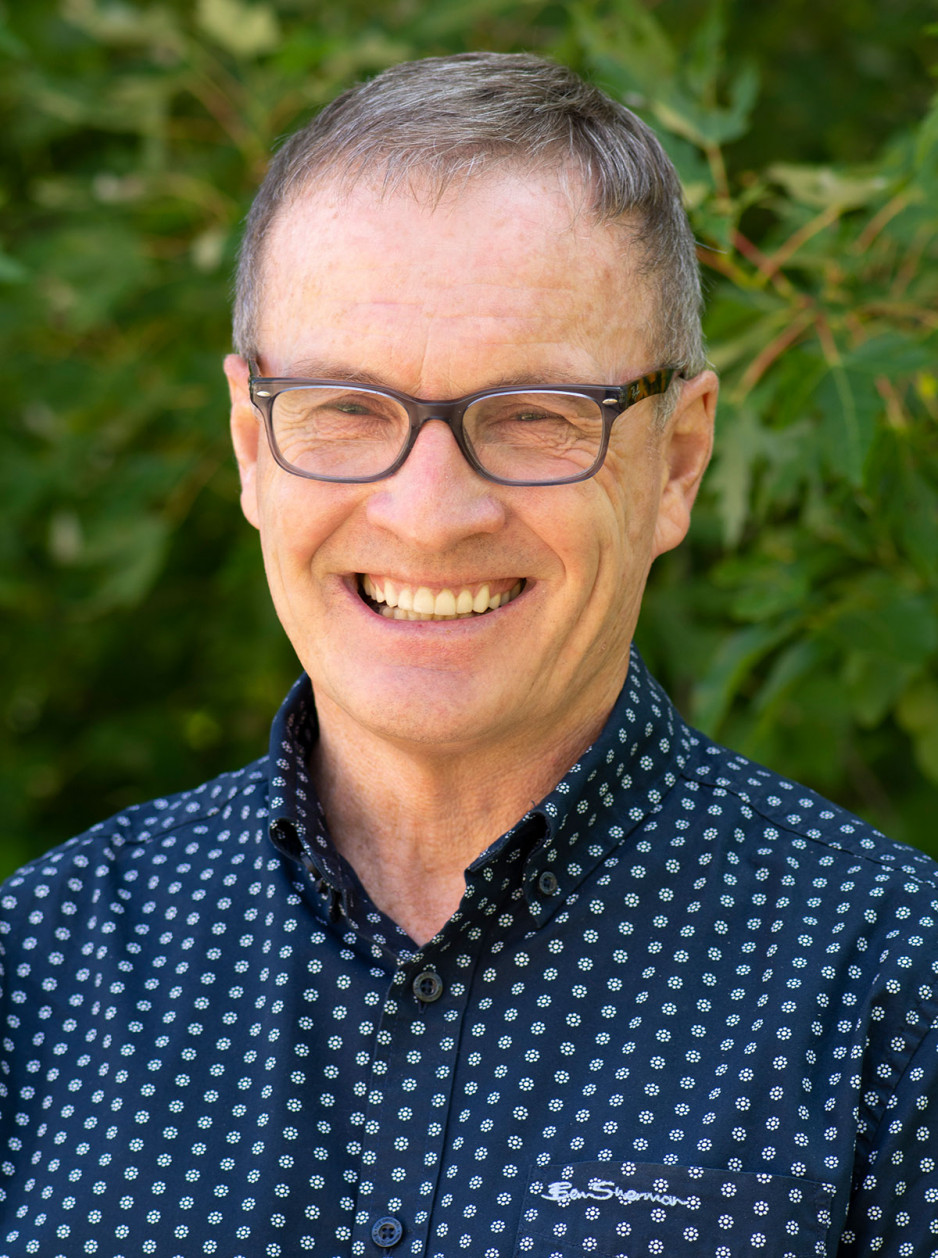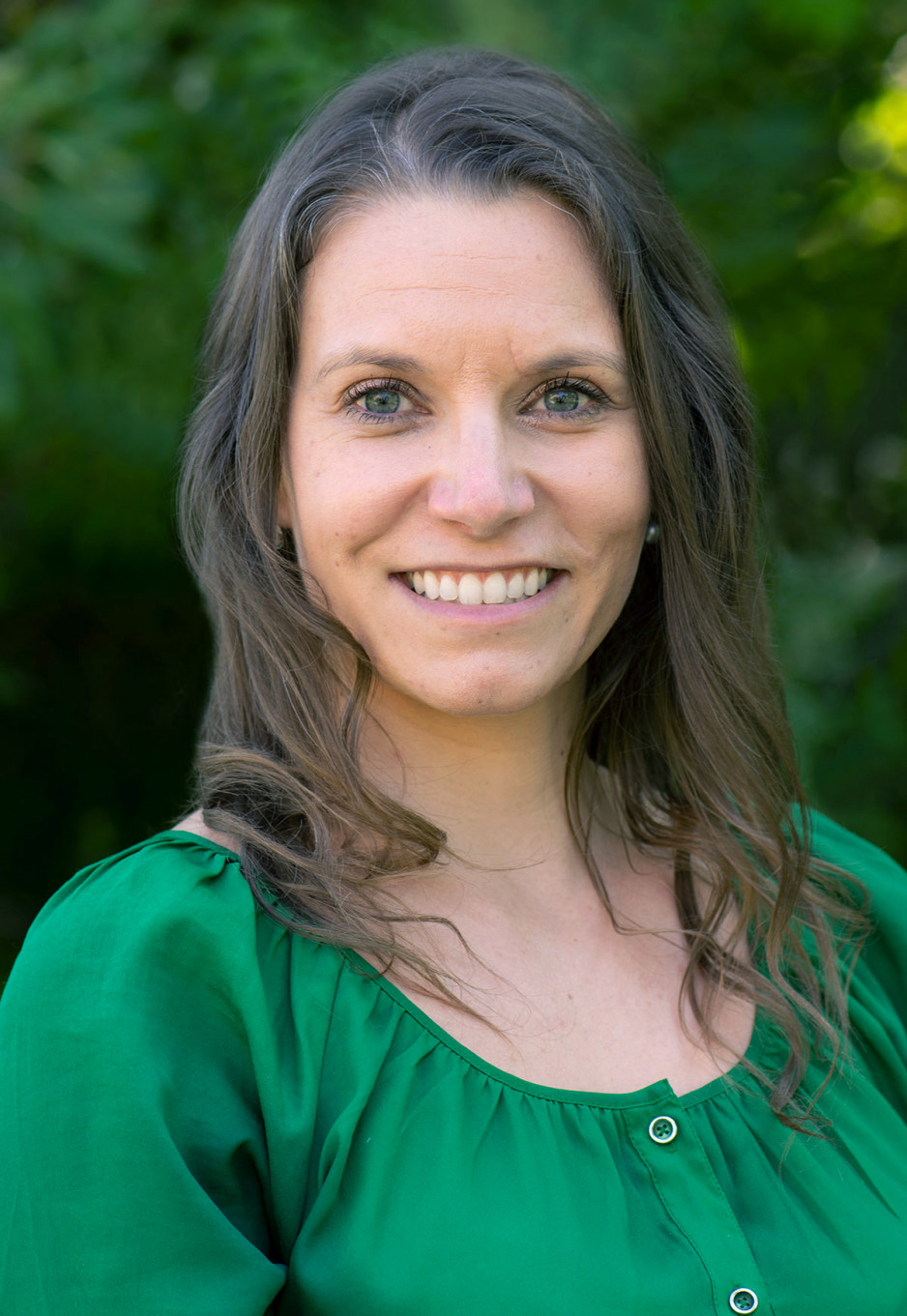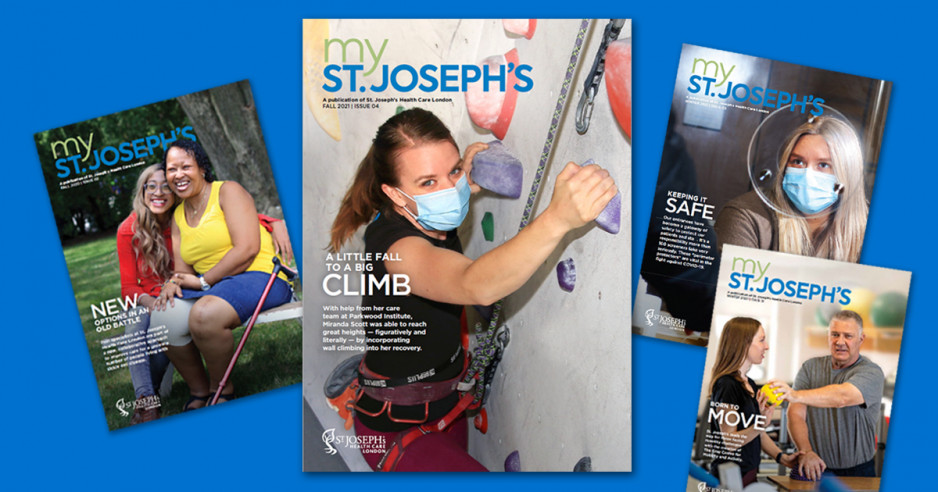Pushing Boundaries in Stroke Rehabilitation
Dr. Robert Teasell remembers visiting veterans in the large open wards at the old Westminster Hospital when he was a medical student. “The most popular person was a lady who went around twice a day and handed out free cigarettes,” he says with a laugh, “Times have changed!”
They certainly have, and Dr. Teasell’s illustrious career in stroke rehabilitation at St. Joseph’s Health Care London (St. Joseph’s) has contributed significantly to those health care changes. He is considered the “godfather of stroke rehabilitation in Canada,” says Dr. Keith Sequeira, Interim Chief of Physical Medicine and Rehabilitation in London. It’s a legacy now inspiring others to make their own mark in stroke research and care with the creation in London of the Dr. Robert Teasell Fellowship in Stroke Rehabilitation Care & Research.
Dr. Teasell began his career at the former University Hospital (UH), a leading neurology hospital now part of London Health Sciences Centre. Alongside advances in acute care at UH, stroke rehabilitation began to change. With this shift, UH became one of the first centres to create a team to treat patients after stroke.
In the late 1990s the Ontario government developed a comprehensive stroke strategy and Dr. Teasell played a key role in the group assigned to improve and standardize stroke rehabilitation, and establish outcome measures.
In 2001, as part of health care restructuring in London, Dr. Teasell, then Chair of Physical Medicine and Rehabilitation, led the process of consolidating the city’s four stroke rehabilitation units into one, which was then relocated to Parkwood Hospital (now St. Joseph’s Parkwood Institute). In 2002, he and his team produced the first Stroke Rehabilitation Evidence-Based Review (SREBR), a comprehensive analysis of existing research data with implications for patient care. The study shone a light on key principles that Dr. Teasell calls the “Big Five” – essential elements of rehabilitation that make the biggest difference. They call for stroke therapy that is specialized, intense, task-specific, provided quickly after a stroke, and continued on an outpatient basis.
With these ground-breaking findings and Dr. Teasell’s expert guidance, Parkwood Institute made a major investment in outpatient post-stroke therapy to support the new, specialized stroke rehabilitation inpatient unit. While unique at the time, outpatient therapy soon became a standard of care. In 2009, the team developed the community stroke rehabilitation teams in conjunction with the Southwest Local Health Integration Network.
“Introducing outpatient therapy resulted in significant changes in outcomes and reduced costs for patients and the system,” says Dr. Teasell.
Today, Dr. Teasell and his team are focused on the future of stroke rehabilitation. Enthused as ever, he predicts “a second transformation in stroke rehabilitation” is on the horizon.
With more than 375 peer-reviewed articles, 22 book chapters, and 60 monographs, Dr. Teasell’s contributions to research and patient care are exceptional. Equally important has been his mentorship of a new generation of rehabilitation scientists. He believes in hiring motivated people, giving them top billing on publications, and fostering collaboration.
To honour Dr. Teasell’s dedication to ensure a future generation of committed scientists and his many contributions to the field of stroke rehabilitation, St. Joseph’s and St. Joseph’s Health Care Foundation have partnered to create the fellowship in his name, which will provide salary and research support to a promising young researcher.
Dr. Jamie Fleet is such a researcher. With a focus on bone health and stroke, she is the inaugural Teasell Fellow. Her goal is to build a more complete understanding of bone health after stroke, identify gaps in screening and treatment, and study the safety and efficacy of potential treatments. Dr. Fleet is also working to shed light on the effect of aerobic exercise on brain activation and fatigue levels after a stroke, and to identify and address potential barriers to exercise recommendations.
“This will be huge for the future of stroke rehab research and patient care outcomes,” says Dr. Sequeira of the fellowship. “It will ensure our patients continue to receive the best quality of care.”


